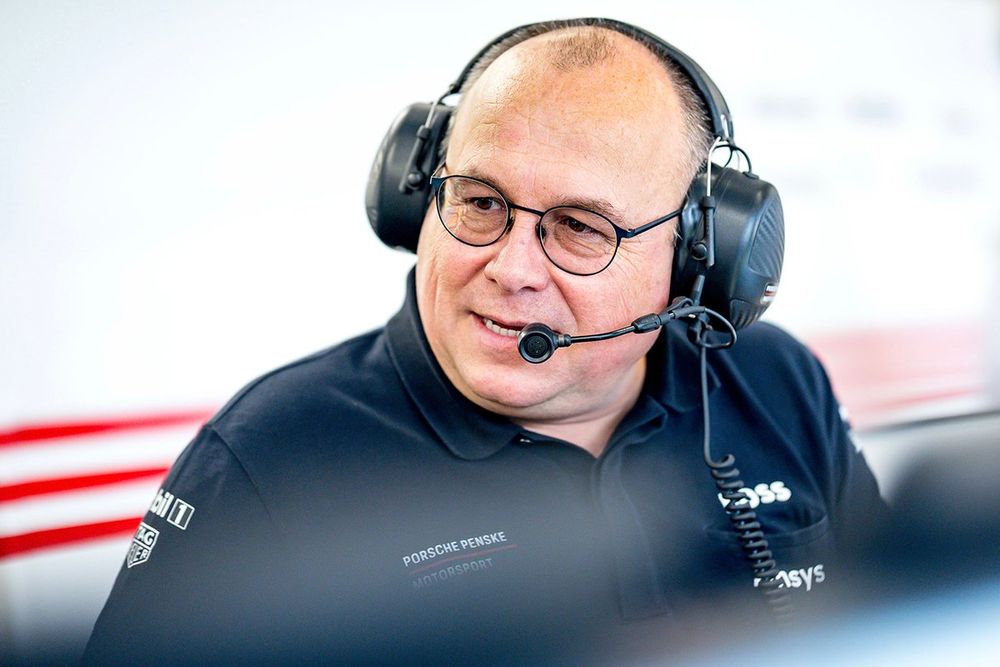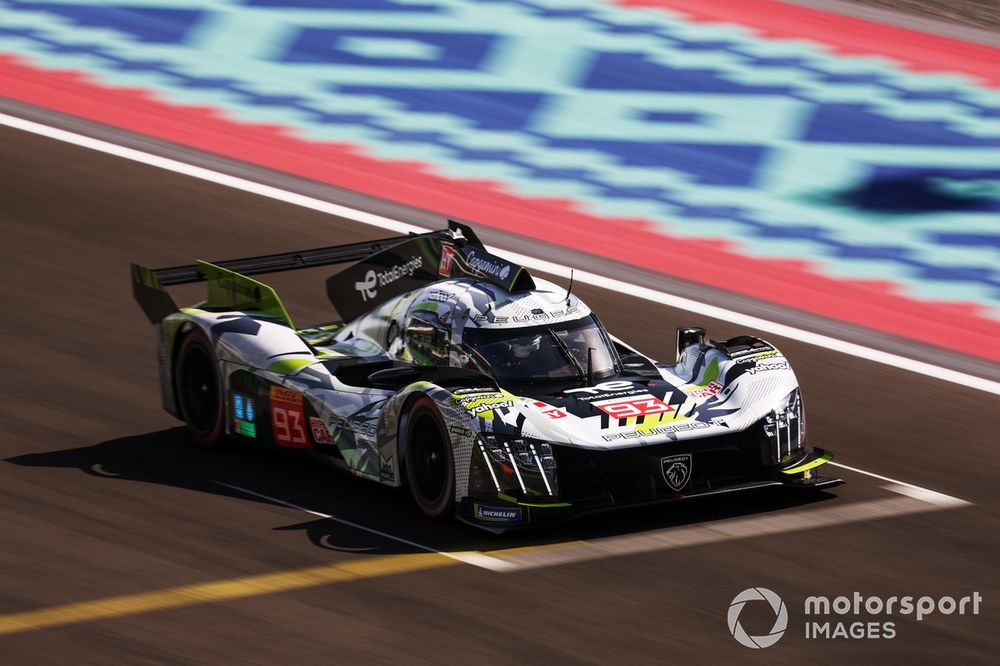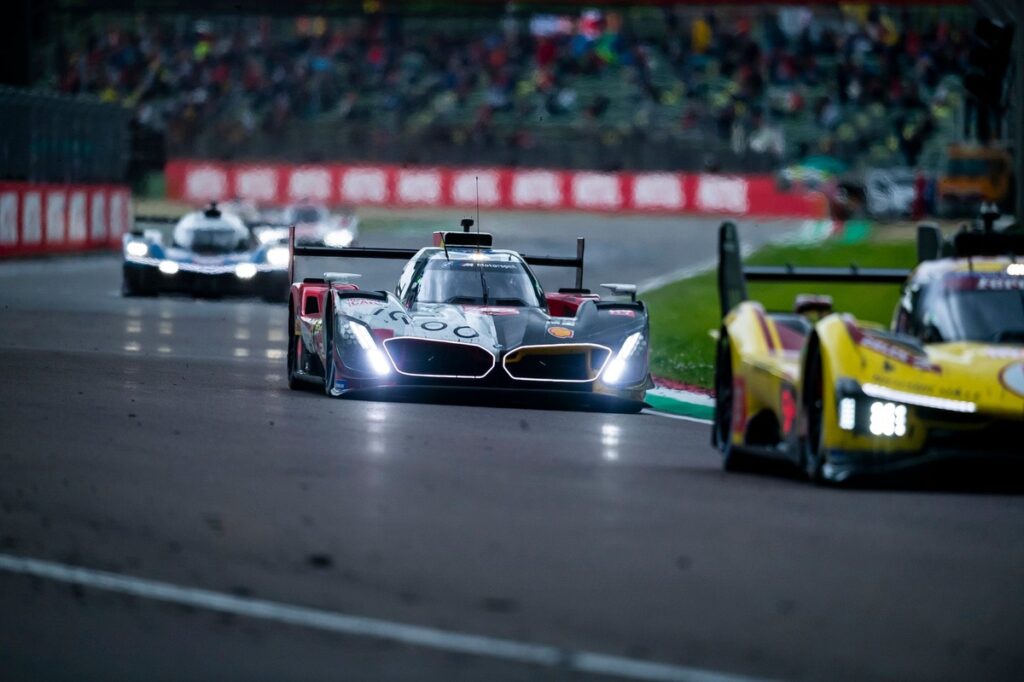The existing Hypercar World Endurance Championship rule book appears set for a further extension that could allow the current generation of cars to race until the end of 2032.
Series boss Frederic Lequien has revealed to Autosport that a follow up on the two-year extension to the end of 2029 announced last summer is on the table.
“The only thing I can say is that we must be realistic,” he said. “We have something that is working so well, and we will soon be welcoming more manufacturers [Hyundai, Ford and McLaren].
“To not think about extending the homologation would be a mistake. I am not saying we are going to do it, but we are thinking about it.”
Lequien did not mention how long the existing rules might be prolonged for, but it appears that three years is the option being most strongly considered.
The Le Mans Hypercar rules came into force in 2021, with the second route into Hypercar, LMDh, opening up for 2023.
#51 Ferrari AF Corse Ferrari 499P: Alessandro Pier Guidi, James Calado, Antonio Giovinazzi
Photo by: Paul Foster
At that point the initial five-year rules cycle for LMH was prolonged by two years until the end of 2027 to bring it in line with LMDh.
The further extension was announced on the eve of last year’s Le Mans 24 Hours when WEC rule makers the FIA and the Automobile Club de l’Ouest firmed up plans for the introduction of hydrogen-powered cars in 2028.
The vision outlined by the governing bodies called for these cars to be able to compete with the next-generation of conventionally-fuelled Hypercar machinery from 2030.
The idea of pushing back the end date for the current rules in both the WEC and the IMSA SportsCar Championship in North America has been welcomed by the manufacturers.
Urs Kuratle, who heads up the LMDh programme at Porsche, said: “We would be in favour of it: it would be a good thing, good for the manufacturers in both championships.
“It is something we know is being discussed but as a manufacturer we are not yet involved in those discussions, but from our point of view it would make sense.”

Urs Kuratle, boss of 963 programme at Porsche Penske Motorsport
Photo by: Porsche Penske Motorsport
Peugeot Sport technical director Olivier Jansonnie echoed Kuratle’s viewpoint.
“There are new manufacturers entering the WEC in 2027 and them having only three years of racing to try to create some value from the investment they are making is a bit short, so it would all make a lot of sense,” he said.
“The conditions of the extension have not been discussed with us: now we are waiting to see what the ACO and the FIA wants to do officially.”
What is not clear is whether there will be attempts to bring the LMH and LMDh rules together during any extension period.
But the manufacturers appear unanimous in a belief that there should only be one platform when the next rules cycle comes into force.
“No one likes having two platforms,” said Kuratle. “If everyone sits around the table, and I can see that happening in the future, and discusses openly for the good of the sport, and says ‘let’s take this from LMH and that from LMDh’, we could make a common ruleset or platform.”

#93 Peugeot Totalenergies Peugeot 9X8: Paul Di Resta, Mikkel Jensen, Jean-Éric Vergne
Photo by: JEP / Motorsport Images
Jansonnie stressed the importance to Peugeot of being able to develop its own chassis and the hybrid element of the powertrain, an option allowed to its LMH.
That is not the case in LMDh where manufacturers develop their machinery around a so-called spine supplied by one of four licensed constructors and have to run an off-the-shelf energy-retrieval system.
He affirmed that a move away from a front-axle hybrid drive would not be a sticking point for the French manufacturer.
“If tomorrow the regulations have to change saying we have to do two-wheel-drive, but with the way the LMH regulations are done where you are in control of the complete design of your car, it would be fine for us,” said Jansonnie.
It is also unclear if the hydrogen class, which would allow both internal combustion and fuel cell cars, will come into force in 2028 as planned.
There are no hydrogen regulations as yet and Toyota, which confirmed its interest in running the alternative fuel in the WEC at Le Mans in 2023 by showing its the GR H2 concept, has stressed the difficulties in being ready to race in ’28.
Toyota Gazoo Racing Europe technical director David Floury said that having a car ready for the current start date would be “extremely challenging” given the absence of regulations.
In this article
Be the first to know and subscribe for real-time news email updates on these topics
Subscribe to news alerts
Read the full article here

